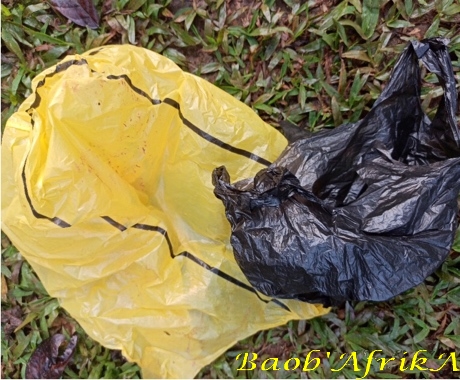NIGERIA
Lagos State
ends the use
plastic packaging
non-biodegradable
for single use
Considered the main polluter
African cities for decades, the use of plastic is
unfortunately in the lifestyles and cultures of life of the populations
in the housing, agriculture and industry sectors
food, commerce...

All this is made worse by a
ignorance and neglect of the many dangers of accumulating
these plastics. Dangers which result in numerous disturbances
on the health of populations but also on the life of wildlife and
flora.
Pollution by plastic waste
generates multiple damages: obstruction of the city's sewers,
soil erosion, pollution of rivers and oceans...
Numerous awareness campaigns and bans on use
of its packaging unfortunately did not succeed in several
African countries.
However, after Brazzaville in Congo,
Nairobi in Kenya, Kigali in Rwanda, it is now Lagos State in
Nigeria which has just promulgated the ban on this dangerous product.
Hellen Kahaso Dena
responsible for the pan-African project
on plastic (from Greenpeace Africa) said
“We commend Lagos State for taking action
decisive in favor of the environment by banning Styrofoam and
other single-use plastics. This is a positive signal and
strength which shows that Nigeria is determined to tackle the problems
critical environmental issues and contribute to a sustainable future
for alongside other African nations.”
Plastics contribute significantly
to the triple planetary crisis: climate change,
pollution and loss of biodiversity. Plastic pollution is
a serious global threat that harms the health of humans and wildlife
and flora - therefore of the planet - and this, more heavily in
less wealthy countries where waste management systems are
ineffective or non-existent. While welcoming this important decision,
Hellen Kahaso Dena specifies that the implementation of this decision
as well as the repair of existing damage constituted a task
monumental.
It now remains for the government to
Lagos State not only enforces the ban on
effectively, but also to strengthen policies and
regulations relating to plastic materials in circulation in
the country. Street vendors and markets in Lagos used
plastic bags for packaging food and products.
Producers will now have to adopt sustainable solutions and
affordable to replace polystyrene and other plastics
Disposable. It is only by providing support that the government
will be able to offer sustainable alternatives to these very harmful
products
which people use every day.
Finally, let us recall that more than 34 African countries
have decreed
a ban on plastics or enacted laws limiting their
use. In most cases, the application of prohibitions
remains a challenge.
Constantin Yap
|


